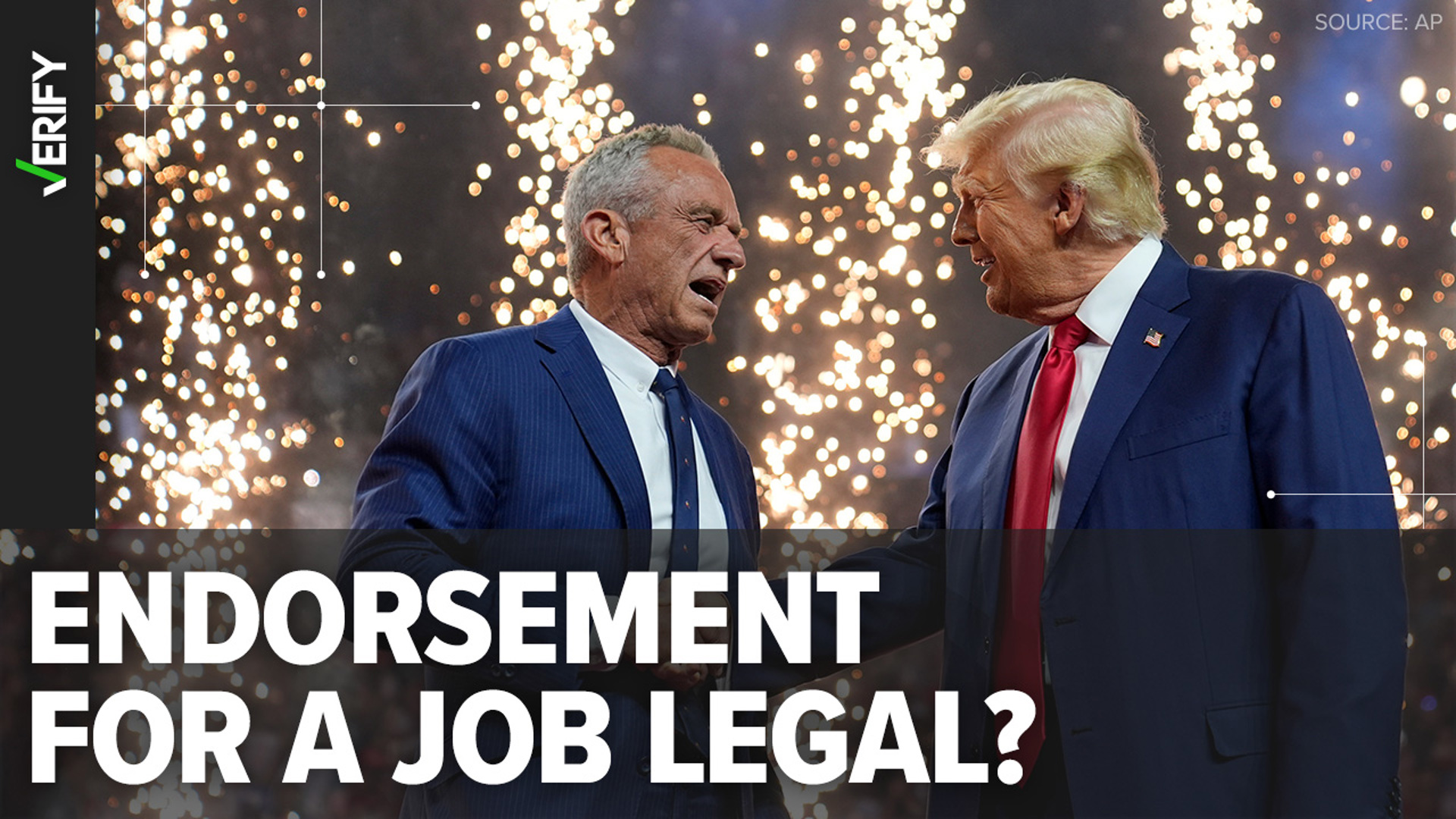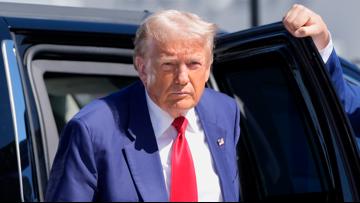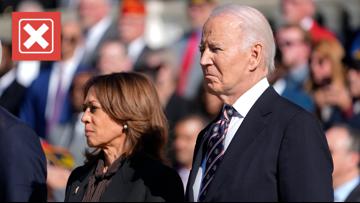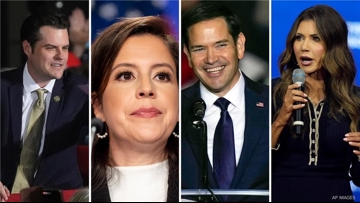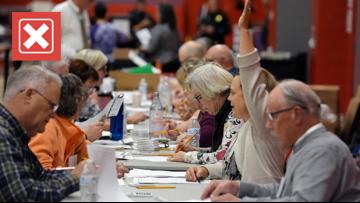Robert F. Kennedy Jr. suspended his independent campaign for the White House and endorsed Donald Trump for president on Friday, Aug. 23. Hours later, Kennedy joined Trump onstage at a rally in Glendale, Arizona.
Kennedy said his decision to support Trump followed conversations with the Republican candidate over the past few weeks. According to the Associated Press, he also suggested Trump offered him a job if he returns to the White House, but neither he nor Trump shared any details.
Nicole Shanahan, Kennedy’s running mate, said in a recent interview that Kennedy could join Trump’s administration as secretary of the Department of Health and Human Services.
According to multiple news outlets, Kennedy also tried to meet with Democratic presidential nominee Vice President Kamala Harris to discuss a Cabinet position in exchange for an endorsement.
While we can’t confirm the specific nature of these private conversations, several people on social media claim that if Trump did offer Kennedy a job in exchange for an endorsement, that would be illegal.
“Oh, by the way, it is a FEDERAL CRIME to promise a post in an administration in exchange for a candidate endorsement. So of course convicted felon Donald Trump got RFK Jr. to endorse him. And of course, former prosecutor Kamala Harris declined to meet with RFK Jr,” a post with over 860,000 views said.
THE QUESTION
Is it illegal for a candidate to promise a political appointment in exchange for an endorsement?
THE SOURCES
- The Hatch Act
- U.S. Code
- Cornell Law School Legal Information Institute
- A blog post by Michael C. Dorf, J.D., Robert S. Stevens Professor of Law at Cornell Law School
THE ANSWER
Yes, it is illegal for a candidate to promise a political appointment in exchange for an endorsement.
WHAT WE FOUND
It is a violation of federal law to promise a political appointment in an administration in exchange for an endorsement. But experts say prosecution of this law is rare, and it’s unclear how it would be enforced regarding presidential candidates.
The situation is outlined in the Hatch Act, codified at 18 U.S. Code § 600:
Promise of employment or other benefit for political activity
Whoever, directly or indirectly, promises any employment, position, work, compensation, contract, or other benefit, provided for or made possible in whole or in part by any Act of Congress, or any special consideration in obtaining any such benefit, to any person as consideration, favor, or reward for any political activity or for the support of or opposition to any candidate or any political party in any election, shall be fined not more than $1,000 or imprisoned not more than one year, or both.
“On a very straightforward reading of that text, Trump’s promising of any job in a future administration in exchange for RFK Jr.’s campaign suspension (‘any political activity’) or endorsement (‘support’) is a violation,” according to Michael C. Dorf, J.D., a constitutional law professor at Cornell Law School.
But actual prosecution of this law is extremely rare. Dorf says he could only find one reported case of a conviction for violation of 18 U.S.C. § 600, and he says “that case involved the hiring of a secretary for a regional commission in recognition of her political activity.” Since there are no cases on record involving promises of presidential appointments, it is unclear how the law would be enforced regarding such promises.
“Should 18 U.S.C. § 600 be construed to reach promises of Presidential appointments? There are policy reasons why one might not want to read it that way,” Dorf wrote. “Intra-party contests for a nomination frequently result in the eventual winner naming erstwhile rivals to important positions.”
There are many examples on both sides of the aisle where presidential candidates have dropped out of the race, endorsed the eventual winner and were then given Cabinet positions. This is not illegal, unless the presidential candidate explicitly offered a job in their administration in exchange for that endorsement.
For example, Barack Obama named Joe Biden his running mate and Hillary Clinton his first Secretary of State after they dropped out of the presidential race and endorsed him, Dorf notes. Biden also chose Kamala Harris as his running mate and Pete Buttigieg as Secretary of Transportation for his administration.
“It’s likely that there were at least conversations, even if not express promises, in some or all of these cases,” Dorf wrote. Making a promise like that would technically be illegal, but there is no proof that it happened in these cases, or in the case of Kennedy and Trump.
VERIFY reached out to Kennedy’s and Trump’s campaigns for comment but did not hear back by the time of publication.
The Associated Press contributed to this report.
